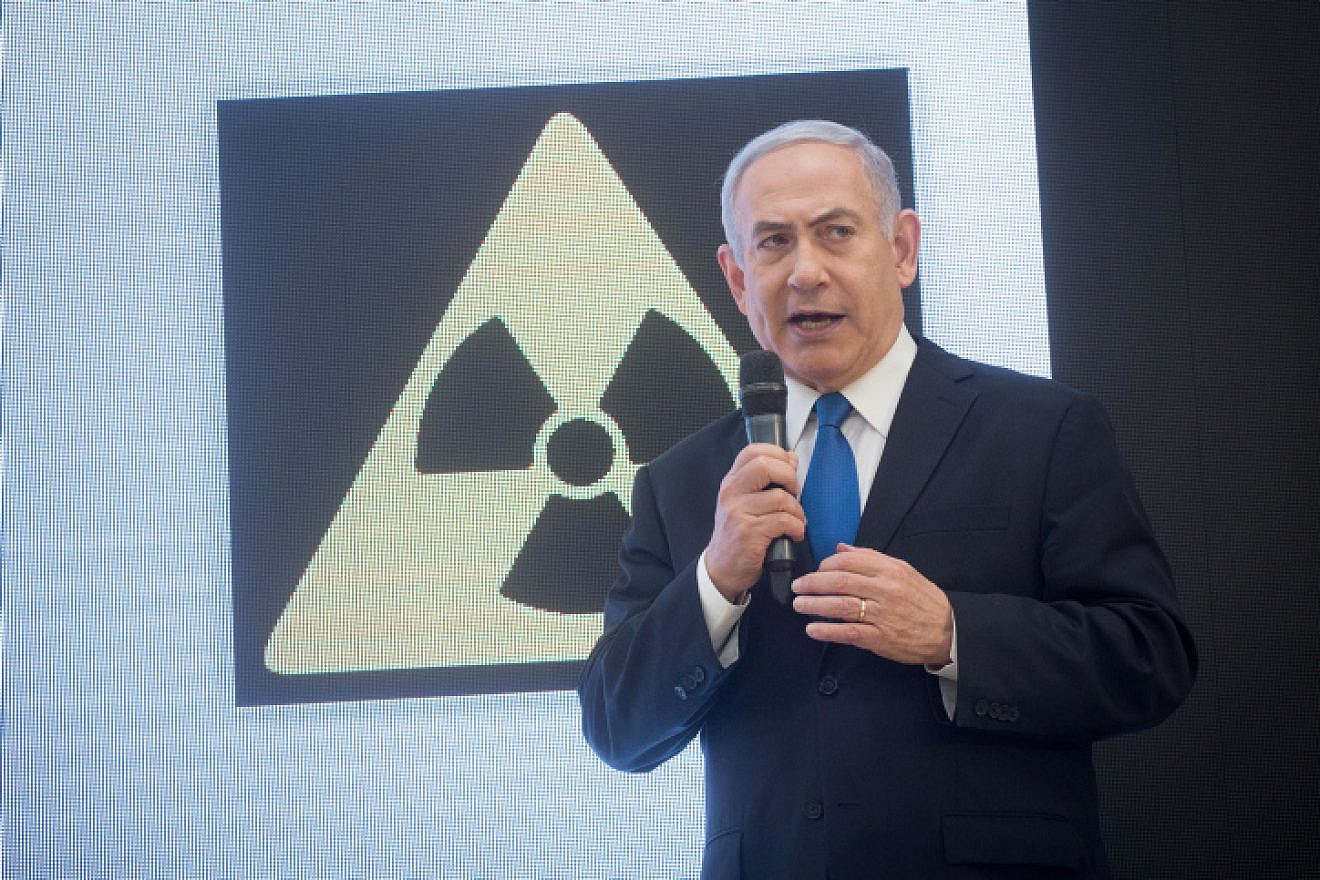by JNS
We are opposed to "mini-agreements," said the premier.
 |
Prime Minister Benjamin Netanyahu presents a trove
of Iranian documents on Tehran's nuclear program at a press conference
in Tel Aviv, April 30, 2018. Photo by Miriam Alster/Flash90. |
Israel will act to defend itself against Iranian aggression, Prime Minister Benjamin Netanyahu said Sunday amid reports the United States is closing in on a “mini deal” with the Islamic Republic.
“We have made it clear, and I reiterate: The State of Israel will do whatever it needs to, with its own means, to defend itself from Iranian aggression both in the nuclear sphere and, of course, through its use of terrorist proxies,” said Netanyahu at the start of the weekly Cabinet meeting.
“We have made it clear to our American friends time and again, and I will do so again today, that we oppose the agreements, first of all the original agreement, the JCPOA [2015 Iran nuclear accord], which will only pave Iran’s way to a bomb and line its pockets with hundreds of billions of dollars,” continued the premier.
“Our persistent opposition has contributed to the fact that the U.S. is not returning to this agreement. We have also told them that the most limited understandings, what are termed ‘mini-agreements,’ do not—in our view—serve the goal and we are opposed to them as well,” added Netanyahu.
The New York Times reported last week that the U.S. and Islamic Republic had reached a broad outline for a deal following indirect negotiations, some of which took place in the Gulf state of Oman last month.
According to the report, the agreement would limit Iran’s uranium enrichment to its current production level of 60%. Iran would also put a stop to its terrorist proxies’ attacks against American contractors in Syria and Iraq. Additionally, Iran would increase its cooperation with international nuclear inspectors and halt ballistic-missile sales to Russia.
In exchange, the United States would agree not to ratchet up economic sanctions, to stop confiscating Iranian oil as occurred in April and not to seek punitive resolutions against Iran at the United Nations or at the International Atomic Energy Agency.
The Times also reported that Iran wants the United States to unfreeze billions of dollars in Iranian assets in exchange for the release of three Iranian American prisoners.
One of the objectives of the emerging deal is to stop Israel from attacking Iran, Reuters reported this weekend.
“If [the] Iranians miscalculate, the potential for a strong Israeli response is something that we want to avoid,” a Western official was quoted as saying.
Israeli Defense Minister Yoav Gallant met with his U.S. counterpart Llyod Austin in Brussels on Thursday and received assurance from the Pentagon chief that Israel would maintain its qualitative military edge in the region and that it will continue to reserve the right to act against Iran.
“Both leaders agreed to continue working together to address the wide range of threats posed by Iran, including its nuclear program, destabilizing regional activities, and proliferation of uncrewed aerial systems and other lethal assistance throughout the Middle East and to Russia,” the U.S. Department of Defense said in a statement.
Last week, Netanyahu reportedly said that Israel could accept the emerging Washington-Tehran agreement, explaining during a closed-door, three-hour meeting with members of the Knesset Foreign Affairs and Defense Committee that the sides were approaching a “mini-agreement, and not a nuclear agreement.
“This is not the agreement we know—this is an agreement which we will know how to deal with,” the prime minister reportedly said, referring to the 2015 nuclear deal between Tehran and world powers opposed by Israel and dropped by U.S. President Donald Trump in 2018.
“Our position is clear: No agreement with Iran will be binding on Israel, which will continue to do everything to defend itself,” Netanyahu said.
JNS
Source: https://www.jns.org/middle-east/benjamin-netanyahu/23/6/18/296111/
No comments:
Post a Comment